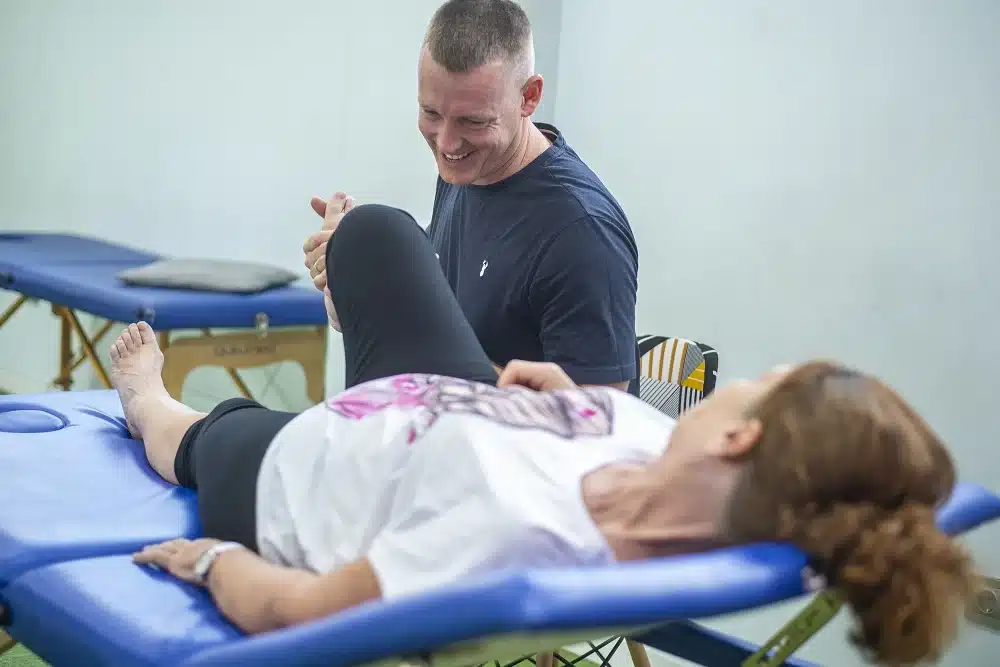Neurorehabilitation is a comprehensive treatment that helps people with multiple sclerosis to improve their function and quality of life. It is a personalized process that is tailored to the individual needs of each patient.
Multiple sclerosis (MS) is a chronic disease of the central nervous system that can cause a wide range of symptoms, such as weakness, fatigue, balance and coordination disorders, vision and cognitive problems.
In this article, we will discuss the neurorehabilitation options available to people with MS, as well as the benefits they can expect.
What are the benefits of neurorehabilitation for MS?
Neurorehabilitation can help people with MS improve their quality of life in many ways. It can:
- Reduce MS symptoms, such as weakness, fatigue and balance problems.
- Help people with MS become more independent and participate more fully in their daily activities.
- Improve the mood and self-esteem of people with MS.
How does neurological rehabilitation work in Multiple Sclerosis?
Neurological rehabilitation is a treatment that helps people with neurological disorders recover or improve their function.
It is based on the idea that the brain is plastic, meaning that it can adapt and change over time.
Neurological rehabilitation can help people with Multiple Sclerosis improve their:
- Motor function, such as strength, coordination and balance.
- Cognitive function, such as memory, attention and reasoning.
- Emotional and psychological function.
Neurological rehabilitation in Multiple Sclerosis is based on a holistic approach that takes into account the person’s physical, cognitive and emotional needs.
The rehabilitation team will work with the patient to develop a personalized treatment plan that addresses his or her specific symptoms and goals.
Most common types of neurological rehabilitation treatment in Multiple Sclerosis
The most common types of neurological rehabilitation treatment in Multiple Sclerosis include:
- Physical therapy: Physical therapy helps people with Multiple Sclerosis improve their strength, mobility and balance. Physical therapists may use a variety of techniques, such as exercises, stretching and strength training.
- Occupational therapy: Occupational therapy helps people with Multiple Sclerosis develop the skills needed to perform daily activities. Occupational therapists can help people with Multiple Sclerosis learn to use assistive devices, adapt their environment and develop strategies to compensate for their limitations.
- Speech therapy: Speech therapy helps people with Multiple Sclerosis who have speech or language problems. Speech therapists can help people with Multiple Sclerosis improve their verbal and nonverbal communication.
- Neuropsychology: Neuropsychology helps evaluate and treat cognitive problems that can occur with Multiple Sclerosis. Neuropsychologists can help people with Multiple Sclerosis improve their memory, attention, reasoning and other cognitive skills.
Neurological rehabilitation can help people with Multiple Sclerosis improve their quality of life in many ways. It can help to:
- Reduce symptoms of Multiple Sclerosis, such as weakness, fatigue and balance problems.
- Help people with Multiple Sclerosis become more independent and participate more fully in their daily activities.
- Improve the mood and self-esteem of people with Multiple Sclerosis.
It is important to note that neurological rehabilitation treatments should be personalized to suit the individual needs of each patient.
Here are some specific examples of how neurological rehabilitation can help people with Multiple Sclerosis:
- A Multiple Sclerosis patient who has weakness in his legs can receive physical therapy to help improve his strength and mobility. This can help him or her walk, climb stairs and perform other daily activities.
- A patient with Multiple Sclerosis who has balance problems may receive occupational therapy to help develop strategies to compensate for his or her limitations. This can help him or her avoid falls and feel more confident.
- A Multiple Sclerosis patient who has language problems may receive speech therapy to help improve his communication. This can help him or her interact with others and participate in social activities.
- A patient with Multiple Sclerosis who has cognitive problems may receive neuropsychology to help improve his memory, attention and reasoning. This can help him or her learn, solve problems and make decisions.
Neurological rehabilitation is an important part of Multiple Sclerosis treatment. It can help people with Multiple Sclerosis live fuller, more satisfying lives.
Leave us your data to start your treatment







